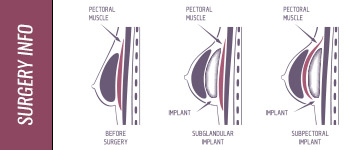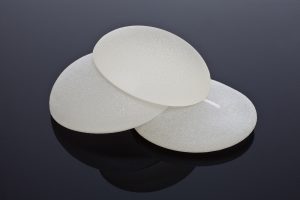In what I would consider to be a statement of the obvious, a new study was recently released indicating that plastic surgery is not effective at reducing the severity of body dysmorphic disorder (BDD).
According to Katharine A. Phillips, MD, director of the body image program at Rhode Island Hospital and co-author of the study, “BDD is a psychiatric disorder characterized by preoccupation with an imagined or slight defect in appearance which causes clinically significant distress or functional impairment. A majority of these individuals believe they have an actual deformity that can be corrected by cosmetic treatments to fix these perceived defects rather than seeking psychiatric intervention.”
For this study, Phillips and her research associates examined 200 individuals with BDD. Of these individuals, 31% desired plastic surgery and 21% actually received a surgical or minimally invasive cosmetic procedure in order to treat their BDD symptoms. Only 2% of the procedures actually alleviated the patients’ BDD, and almost all patients continued to experience BDD symptoms after plastic surgery. In fact, some patients even developed new body image issues.
There were also 265 plastic surgeons interviewed for this study. Approximately 65% of the surgeons questioned had performed procedures on patients suffering from BDD. Of these, only 1% resulted in an improvement of the condition.
Phillips and her associates concluded that, “These findings, coupled with reports of lawsuits and occasionally violence perpetrated by persons with BDD towards physicians, have led some to believe that BDD is a contraindication for cosmetic treatment.” Yet surprisingly, only 30% of the 265 plastic surgeons surveyed believed that BDD should always rule out a patient as a candidate for plastic surgery.
It appears that the majority of surgeons are either oblivious or just plain greedy. If they are unable to perceive a patient’s BDD or worse, unable to realize that this condition requires psychological treatment rather than cosmetic alterations, then I would have to question their qualifications as a medical professional. If they simply ignore these signs in an attempt to pad their already cushy bank account, then they should lose their medical license for a lack of ethics. These doctors are clearly not acting in the best interests of their patients.
I can’t believe that researchers actually wasted their time, energy, and money on this study. It seems to me that only a moron would not realize that plastic surgery is an inappropriate treatment for BDD. These people suffer from a serious psychological condition. Generally, the only way to treat such a disorder is through extensive therapy.
Plastic surgery won’t address the underlying cause of the condition. It is merely a Band-Aid to help the patient make it through each day in the short term. Eventually, these body image issues will resurface again – usually sooner than later. If the psychological issues are not dealt with, these patients will remain in an endless cycle of paying large sums of money to plastic surgeons in an attempt to feel better about themselves. This does not help anyone other than the plastic surgeon who is too greedy to refer the patient to a psychologist for proper treatment.
Plastic surgery is not for everyone, and it is important that plastic surgeons evaluate a potential patient’s mental/emotional health as well as his or her physical health before deciding whether to perform a procedure. While there are many surgeons who abide by this code of ethics, this study clearly demonstrates that there are also many who do not. It is time for the medical community to exert pressure on plastic surgeons to ensure that mentally unstable patients receive the psychological help they need instead of breast augmentation or liposuction.
If you do not suffer from body dysmorphic disorder and would like to undergo plastic surgery, contact an experienced plastic surgeon today to schedule your initial consultation. However, if you have serious body image issues, I would recommend that you see a shrink instead.





Leave a Reply